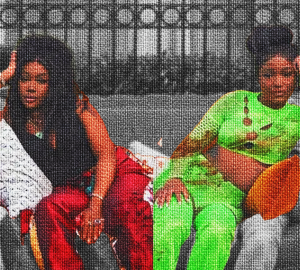By Luiz Coelho
So, Earth Hour is gone. For one hour on March 29, several houses and businesses around the world turned their lights off to “make a difference,” according to the World Wildlife Fund. SCAD-Atlanta joined Earth Hour and even 30 minutes before its beginning, security was asked not to allow people to enter the main building. I was among those who were turned down at the door, even having arrived at SCAD at 7:25 p.m. just for a quick scan of a couple pages.
The immediate results seem to be interesting. Some cities, such as Christchurch (New Zealand), Sydney (Australia), and Dubai (United Arab Emirates) spent at least 10 percent less energy during the event, according to the WWF. Based on such conclusions, the Earth Hour committee claimed the event was an astonishing success.
But, is that true? In 2007, Herald Sun columnist Andrew Bold disagreed. He argued that “a cut so tiny was trivial — equal to taking six cars off the road for a year.” Also, David Solomon, a Ph. D. student at the University of Chicago, claimed that, in fact, “more than 67 percent of the apparent decline during Earth Hour was due to factors operating throughout the entire day.” This would change the estimated reduction in electricity use during Earth Hour to a tiny 2.1 percent that year.
Accusations of tokenism surround the event, which is seen by some as merely a feel-good policy. Apparently, such policy has gone worldwide in 2008 and more and more cities joined in. Sydney had fireworks. Toronto had a Nelly Furtado concert. Even Google had a black background — but after the Earth Hour frenzy, did anything change? And, at SCAD-Atlanta, did
anything change?
I am probably being too pessimistic about the whole thing, but it is my impression that such a bold event cannot be succeeded by the same appalling policies that existed before it. It is known that several of those cities have tried to be environmental-friendly. SCAD has also contributed locally. However, we must admit that the depletion of our planet is still in a fast pace and we urgently have to rethink how we use the environment. Maybe we don’t need so many lights, especially in corridors and other public areas. Maybe we don’t need heating systems to be that warm. Maybe we should start eating only organic and locally grown food. Maybe we could boycott products from countries or regions that are clear agressors of the environment. Such a change is hard, for sure, but has to be carried out; otherwise, we might live to see never-ending “Earth hours” due to electricity shortages.
As a final reflection, I would like to close this text with a poem by Julian of Norwich, a 14th Century
mystic, who lived several “Earth hours” in a much more reasonable, dynamic and spiritual way than
we probably do.
Be a gardener.
Dig a ditch,
toil and sweat,
and turn the earth upside down
and seek the deepness
and water the plants in time.
Continue this labor
and make sweet floods to run
and noble and abundant fruits
to spring.
Take this food and drink
and carry it to God
as your true worship.




























